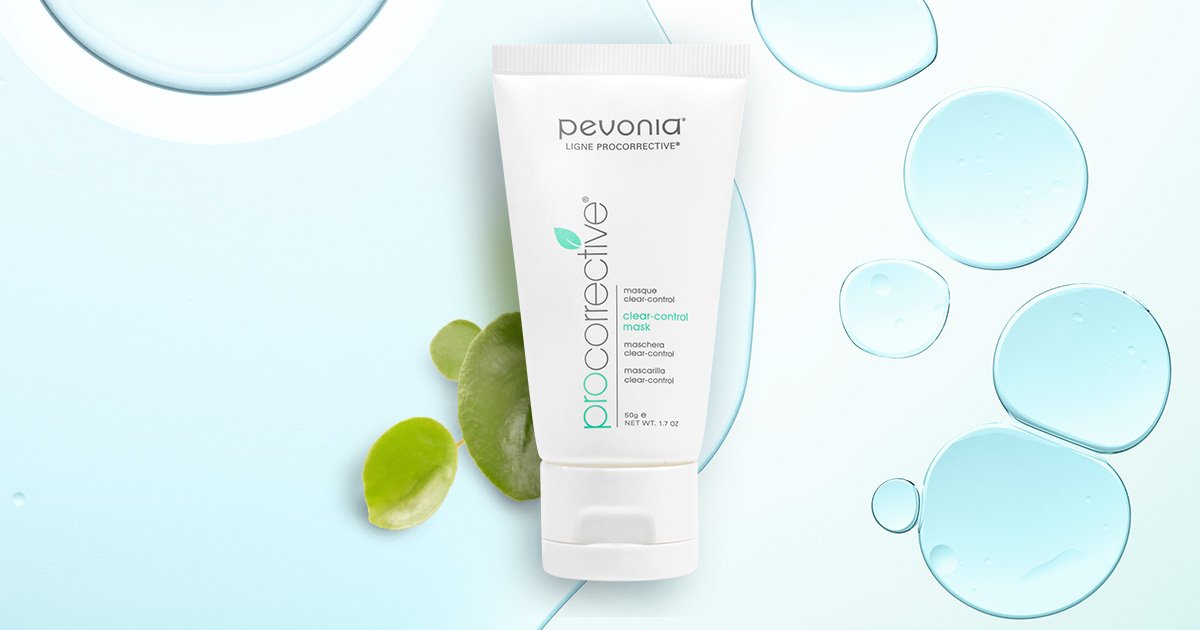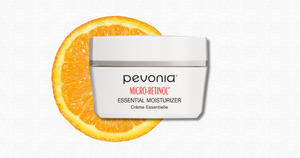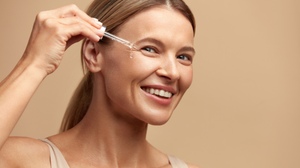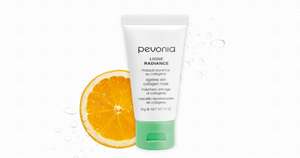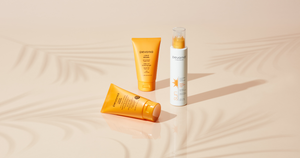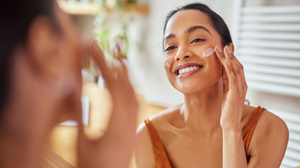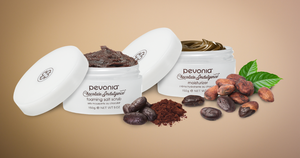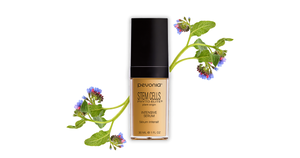
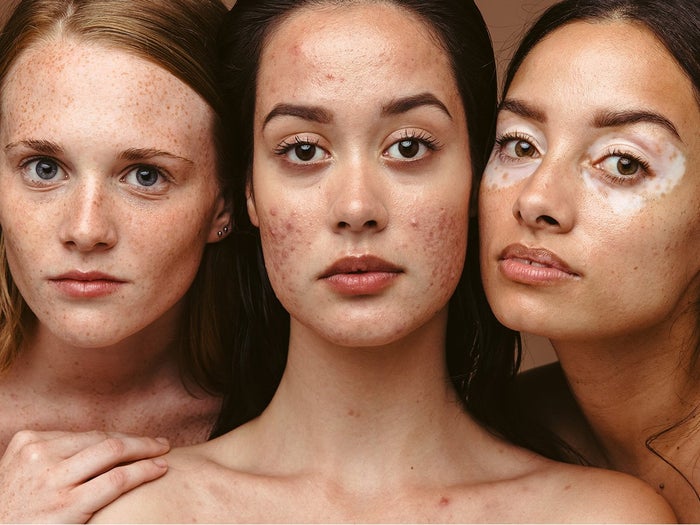
Who knew acne had a type? Well, it actually has many types. Understanding the different types of acne, what causes acne, the progressive grades, and how it manifests is essential to prevent and control breakouts effectively. And, just like every person has a partner who is a perfect fit, so does your acne!
Different Types of Acne
Acne comes in many forms. Each type is distinguished by varying degrees of severity, from mild blackheads and whiteheads to papules and pustules on up to more severe nodules and cysts. What differentiates mild non-inflamed acne from severe acne is the progressive increase of inflammation. Different classification systems are used to measure and categorize acne with some confusing overlaps. To keep it simple, the following will help shed some light on how the different types evolve.
Blackheads - While most types of acne involve the pores filling with oil, dead skin cells, and other debris, blackheads stop there. Although the brown to black-hued debris is unsightly, this form of acne is quite mild.
Whiteheads - This next type of comedonal acne occurs when old, dead skin cells and debris become trapped beneath the skin’s surface and don a whitish cap or head.
Pimples - This type of acne starts as a papule, a small, raised, red, swollen bump that feels sore. At this stage, there is no pus present. However, as inflammation and oil mount, the papule ruptures, becoming a pustule. A pustule involves more inflammation, pus, pain and redness and bears a white or yellow center. With papules and pustules, scarring may develop during the healing process.
Nodules - As inflammation continues to surge, tender swollen masses, called nodules, develop.
Cysts + Abscesses - These red, hard, pus-filled, and painfully deep lesions are the most severe type of acne. Due to the infection present, it is especially crucial never to squeeze this type of acne or risk spreading the infection. Scarring is highly likely at this stage due to a breakdown of collagen. Note: Severe acne with cysts and nodules exceed standard topical acne treatment products and calls for intervention by a dermatologist who can prescribe prescription medications. Once the acne reaches a manageable level, professional Pevonia treatments can help keep pores clear and improve skin health.
Beyond this clinical approach to the different types of acne, some forms are uniquely tied to specific situations and triggers.
What Causes Acne
The top factors involved in acne are excess oil production, clogged pores, dead skin cells, bacteria, inflammation, and genetics. But let's be clear! The congested pores you see are actually hair follicles that get plugged up due to the accumulation of oil and skin cells. But everyone secretes oil and sheds dead skin cells, so why do you get breakouts?
We hate to break it to you, but the amount and composition of your oil and how your skin sheds are unlike your clear-skinned friends. You have a higher amount of oil that is thick and sticky, unlike people with “normal” skin. This results from fewer free fatty acids, like linoleic acid, plus more squalane and wax esters than normal skin types. And you tend to hang onto useless dead skin cells because your oil build-up stimulates and irritates pore walls, which causes you to retain dead skin cells. That oil simply can't find its way through the follicle’s opening with all those dead skin cells in the way. If you have acne, you also have a higher level of bacteria to begin with, and this environment prevents bacteria-fighting oxygen from entering the pore. This allows P. acnes bacteria to feed and produce irritating waste that causes redness and inflammation. The follicle then fills, swells and, potentially, ruptures. Inflammation exacerbates this process and increases when these conditions are left untreated.
To compound matters, genetic factors play a role in acne. First, there is a gene that predisposes some people to develop acne. Darker skin types with thicker, oilier skin tend to be more acne-prone, and people of Spanish descent have another gene that makes them inclined towards cystic acne. If your parents had acne, you are a female or teen, you are also more prone to breakouts.
Beyond these known causes, acne triggered by medical, internal issues, and lifestyle factors continues to confound breakout sufferers and complicate treating it. From stress-related breakouts to blemishes caused by hormonal imbalances, diet, digestive issues, cosmetics, or occupational and vocational challenges, acne triggers seem to be everywhere.
Stress-Related Acne - Stress triggers an influx of hormones, which cause a surge of oil production that leads to breakouts. Stress also causes inflammation, which may weaken pore walls allowing pus to leak into surrounding tissue, causing further inflammation. When people think about acne treatment, they usually don't think about pampering. But acne skin care products with mind-calming aromatherapy are an excellent way to subdue stress levels and counteract breakouts. The aromatic Lemon and Rosemary Extracts infused into each of the ProCorrective® Clear-Control acne products are found to uplift, providing a stress-reducing, balancing effect. Pevonia facials with massage on the neck and shoulders can also help combat acne due to stress.
Hormonal Acne - Hormonal imbalances such as the onset of puberty, menstrual cycles, polycystic ovary syndrome, menopause, Cushing’s syndrome, and other endocrine issues are well-known causes of acne. The ensuing testosterone spikes and drops in estrogen levels increase oil production, clog pores, and trigger breakouts around the mouth, on the chin, and along the jawline. This is commonly seen in adult acne, predominantly affecting women aged 25 to 58. Aside from oral medications, only a few topical ingredients can help address breakouts due to hormonal imbalances. Soothing Chamomile in the ProCorrective® Clear-Control Exfoliator has the potential to topically help minimize the irritation that occurs with a loss of estrogen. Kaolin Clay and Bentonite Clay in the ProCorrective® Clear-Control Mask absorb the excess oil, remove dead cells, and keep pores clear without drying the skin and triggering rebound oil production.
Acne Mechanica - No, you don’t have to be an auto mechanic to get this type of acne. Anyone with a job, hobby, or habit where your skin is frequently rubbed or irritated may develop acne mechanica. For example, if you wear tight clothes, carry a backpack, sit for long periods, or play sports that require sweat-trapping gear, you may experience breakouts in the affected areas. This type of acne is often seen on the back and buttocks and can affect anyone with acne prone skin, regardless of age or sex.
Acne Cosmetica - This type of acne is due to pore-clogging make-up, skincare, and hair products. It appears wherever the products touch the skin. All Pevonia skin care refrains from pore-clogging Mineral Oil and synthetic ingredients that are found to trigger breakouts to keep skin clear and healthy.
Diet and Acne - White flour and sugar (refined carbohydrates), high glycemic index foods, coffee, and dairy from cows treated with hormones are proven to increase breakouts. Also linked with acne are gluten, trans-fats, synthetic, acid-forming, and inflammatory foods that can trigger an influx of stress hormones and acne-causing oil. Diets low in antioxidants and linoleic acid are also believed to trigger acne.
Medical Conditions and Acne - Digestive issues, food allergies, and yeast overgrowth can wreak havoc on the quality of your complexion. Got sluggish digestion, constipation or food allergies? You may notice breakouts on your cheeks. Yeast overgrowth (candidiasis) is also linked with acne. High sugar, high fat, and low fiber diets, lifestyle, medications (like long-term antibiotic use), or stress can encourage candida albicans yeast to overtake good bacteria and penetrate the stomach lining, causing acne and other health problems.
While each of the causes and triggers for acne is different, every acne sufferer needs lightweight yet powerful formulas that clarify pores and reduce irritation. Non-comedogenic clays, acids, moisturizers, soothers, and blemish-fighting botanicals expedite healthy skin repair.
Want to maximize results for your healthiest skin ever? Boost skin health with an in-depth consultation for your ideal products and professional Pevonia treatments. Choose from our YouthRenew™ Hydra-Glow Peel, Lacto-Flora Peel, or Plantomer® Lift-Off Mask Treatment or customized acne care to address your skin’s unique needs. Visit Find A Spa for an oasis near you offering Pevonia!

